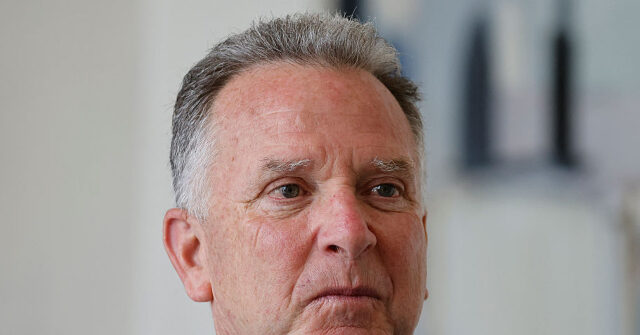U.S. officials have reportedly scheduled a third round of talks with Iranian representatives in Oman, following what both American and Iranian sources described as a successful second round of nuclear negotiations in Rome on Saturday.
Most of the news on the Rome talks has been fed to various media outlets by unnamed U.S. and Iranian officials, all of whom sounded upbeat about the results of the negotiations that began with “indirect” talks in Oman on April 12.
U.S. officials said the talks advanced to a more “direct” status on Saturday, when President Donald Trump’s envoy Steve Witkoff met face-to-face with Iranian Foreign Minister Abbas Araghchi. Washington and Tehran continue to disagree about how “direct talks” should be defined.
Araghchi said on Saturday that a “relatively positive atmosphere in Rome” has “enabled progress on principles and objectives of a possible deal.”
“We made clear how many in Iran believe that the JCPOA is no longer good enough for us. To them, what is left from that deal are ‘lessons learned.’ Personally, I tend to agree,” the Iranian foreign minister said.
JCPOA stands for Joint Comprehensive Plan of Action, the formal name of President Barack Obama’s nuclear deal with Iran in 2015. President Trump withdrew from the agreement during his first term in 2018, calling it “defective at its core.”
The Iranians also frequently complained about the JCPOA, claiming it did not deliver the economic benefits Obama promised when sanctions were lifted. The Iranians continued enriching uranium and repeatedly violated their obligations to allow International Atomic Energy Agency (IAEA) inspections of their nuclear sites.
“The initiation of expert level track will begin in coming days with a view to hammer out details. After that, we will be in a better position to judge,” Araghchi said on Saturday.
Araghchi was enthusiastic enough about the progress of nuclear talks to spend a little time on Tuesday attacking Iranian hardliners and “Israel-affiliated hawkish elements” for attempting to derail the discussions.
A spokesman for the Iranian Foreign Ministry said Araghchi will visit Beijing on Tuesday to brief the Chinese government on the progress of nuclear talks with the United States, much as he had consulted with Russia before the second round of talks in Rome.
The Jerusalem Post on Tuesday quoted Middle Eastern media reports that described Iran as ”surprised by the behavior of the U.S. negotiator and the seriousness and urgency he has shown, as well as the fact that he has not yet put forward any impossible non-nuclear demands.”
According to these reports, the Iranians believe the talks are progressing “beyond expectations.”
A senior Trump administration official told Fox News on Monday that “we made very good progress in our direct and indirect discussions” in Rome on Saturday.
“We agreed to meet again next week and are grateful to our Omani partners for facilitating these talks and to our Italian partners for hosting us today,” the unnamed U.S. official said.
Iran’s sudden eagerness to keep talking has not been taken as a positive sign by critics who fear the outcome could be little more than reviving the JCPOA, or possibly even a modified deal that is even more advantageous for Iran. That outcome would clearly be a political disaster for the Trump administration, which would be excoriated for buying back into the deal that Trump denounced so vociferously in his first term.
“The speed with which technical talks have been agreed to is worrying for those who hope to avoid a repeat of 2013 and 2015, as are allegations of Iran’s offer of a three-step interim or phased proposal for a deal,” Foundation for the Defense of Democracies (FDD) senior fellow Behnam Ben Taleblu told Fox News.
“It would be the height of strategic malpractice and a political own goal to allow the Islamic Republic to force America under the Trump administration into a deal that only slightly modified the accord that Trump rightly criticized and walked away from in 2018,” he said.
“Iran in 2025 is not the Iran in 2015 when that first nuclear deal was made,” added retired Gen. Jack Keane, a senior strategic analyst for Fox News.
Keane noted that Iran now has “the capability to manufacture advanced centrifuges which can enrich uranium from zero to weapons grade in just a matter of weeks,” as well as “ballistic missiles that can deliver the weapon.”
The Jerusalem Post heard the sound of a clock ticking down as President Trump prepares to visit Saudi Arabia “in a matter of weeks,” possibly setting off “some additional seismic shifts in the region.”
Israeli officials are reportedly unhappy with the swift progress of the talks, having tried to convince Witkoff to slow things down and make firmer demands on Iran to reverse its uranium enrichment program. The Israelis also reportedly want Iran to back away from its ballistic missile development, thinning out its arsenal of missiles that could deliver nuclear warheads across long distances.
Read the full article here


